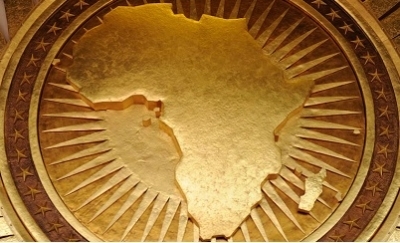
Corruption in Africa has become so rampant that if no radical measures are taken to immediately curb this ill, societies can be destroyed and the continent may never reach its full development. The rot found in most public offices has undermined the extent of development that could be derived from public resources, delivery of public services and consequently impoverisation of African societies. While the situation will vary from one country to another, there is general consensus that this has become a common challenge in most if not all African countries. It is with this understanding that African Heads of State, under the auspices of the African Union, dedicated 2018 as a year not only of deliberating on corruption, but fighting it.
Corruption is essentially a governance issue and the African Capacity Building Foundation(ACBF), has, since its creation in 1991, been working with various institutions and Governments in Africa to build capacities to formulate policies, rules and procedures that enhances systems and leads to good governance. Whilst ACBF has contributed much to assisting countries in policy formulation, the Foundation notes that the challenge now in Africa is for countries to translate those policies into actionable milestones, the capacity to IMPLEMENT. It is for this reason that ACBF remains patient and continuously invests in building strong building human capacities and strong institutions. If the public sector and civil society are strengthened, there is likely to be greater transparency and accountability which will not only improve governance but will help counter corruption.
As has always been echoed by the Executive Secretary for ACBF, Professor Emmanuel Nnadozie, “Eradicating poverty in Africa requires a committed leadership that has the credentials to denounce corruption”. He always emphasizes the role of leadership in assuring strong and competent governance in Africa. In the same vein, the Foundation, will soon be launching its flagship Africa Capacity Report for 2018, which is looking at the capacity imperatives for leadership in Africa. The report will also touch on the effectiveness of transformative leadership in curbing corruption and driving Africa’s development.
The Foundation therefore continues to work with Governments and civil societies to promote accountability and transparency for enhanced public participation in decision making, to ensure that better quality of decisions are made and enforcement of policies, rules and regulations, to avert any opportunities for corruption to thrive.
The 55 African countries, 40 of which are ACBF Member states, who were meeting in Nouakchoutt for the 31st Ordinary Assembly of the African Union from July 1 and July 2, have expressed their commitment and dedication to fighting corruption. The Summit was running under the theme “Winning the fight against corruption. A sustainable path to Africa’s development
As the African Union’s Specialised Agency for Capacity Development, ACBF actively participated in the Summit meetings, with a commitment to support Africa in fighting corruption. The Foundation will conduct capacity needs assessments of selected Anti- corruption bodies/institutions operating at regional and country level. The assessment exercise intends to identify human and institutional capacity weaknesses that impede the anti-corruption institutions to effectively deliver their respective mandate. The assessments will be followed by the formulation of the appropriate capacity development strategies, which will lead to the design and Implementation of capacity building projects/programs in order to address capacity gaps identified during the needs assessment exercise.
ACBF continues to support the Continent to realise its vision of an Africa capable of its own development.
-ENDS-
For more information, please contact:
Tsitsi Chakonza
The African Capacity Building Foundation
Harare, Zimbabwe
+263-4 304663, 304622, 332002, 332014; Ext. 273
Email: T.Chakonza@acbf-pact.org
ABOUT the African Capacity Building Foundation (ACBF)
Having spearheaded and robustly coordinated capacity development programs worth over 700 million US dollars across 45 countries and 8 regional economic communities (RECs) in Africa since 1991, ACBF has gathered the requisite experience that makes it the go-to institution for expert knowledge and human resources to advise and support African countries, regional economic communities and institutions on decisive steps to take to develop the practical skills urgently required for the continent’s economic transformation.
Evidence from our cutting-edge work (constituting hundreds of knowledge publications) and the work of several partners show that Africa's development efforts are being hobbled by severe capacity deficits often in the form of shortage of critical skills, deficits in leadership, inhibiting mindsets and weak institutions. The continent’s practical skills shortage is acute in key areas such as Science, Technology, Engineering and Mathematics (STEM) and Agriculture.
At ACBF, we will continue using our unmatched track record in managing financial facilities for development, our vast knowledge gathering experience thanks to the exceptional skills mix of our core staff as well as our strong strategic partnerships and networks to help countries and institutions identify their capacity needs, advise them on how to plug these capacity weaknesses and on where to find the knowledge and resources to develop the requisite capacity resources, effectively use them and retain them to achieve their short and long-term development objectives.
ACBF’s vision is an Africa capable of achieving its own development.
Support this crucial work
Leverage your own efforts geared towards Africa’s transformation, or
Partner with us by writing to:
B.Kone@acbf-pact.org (to support us with resources for Africa’s Capacity Development)





